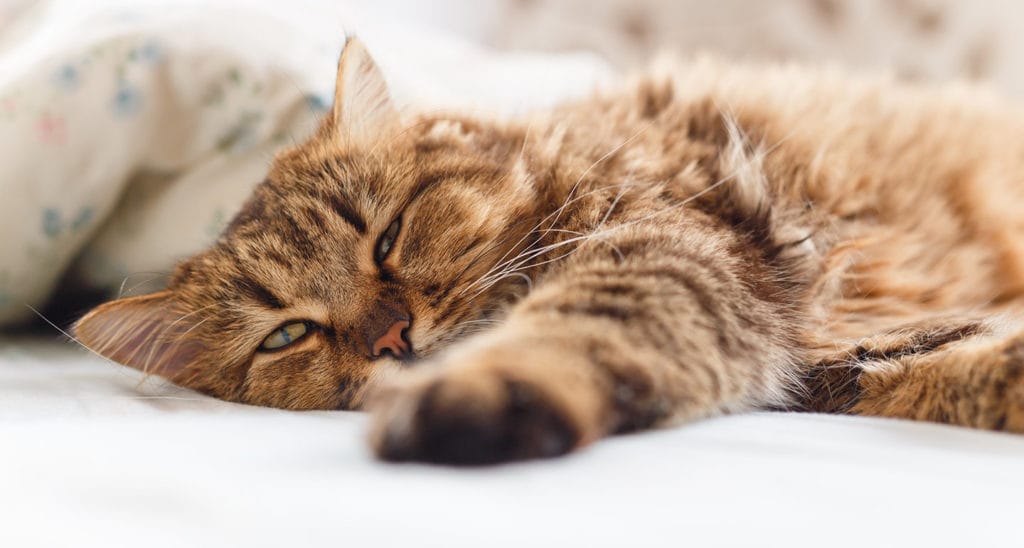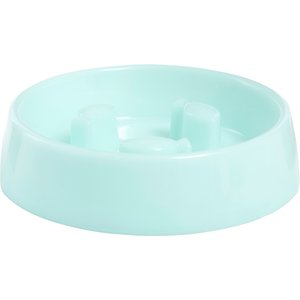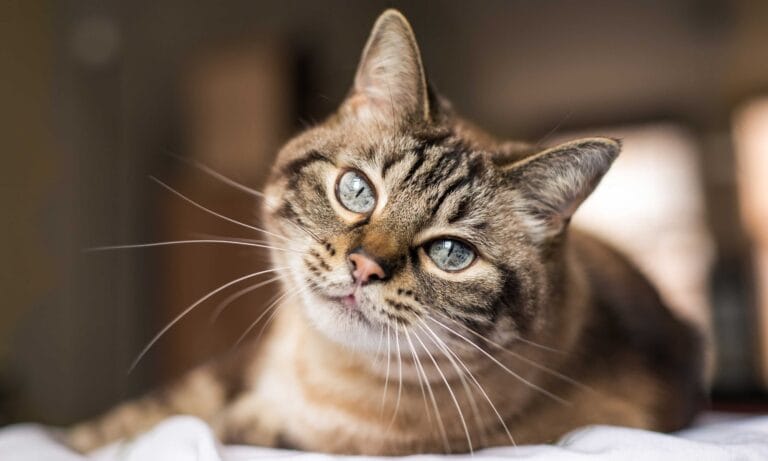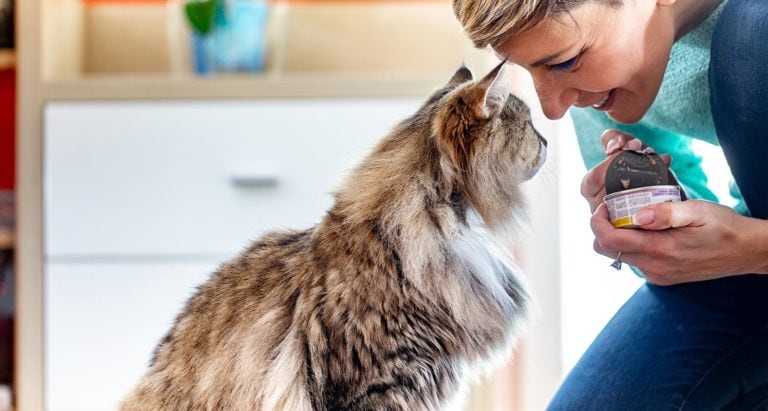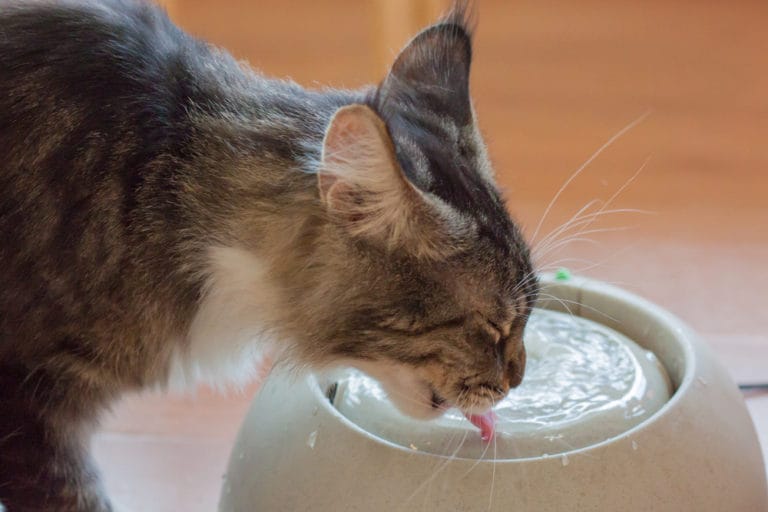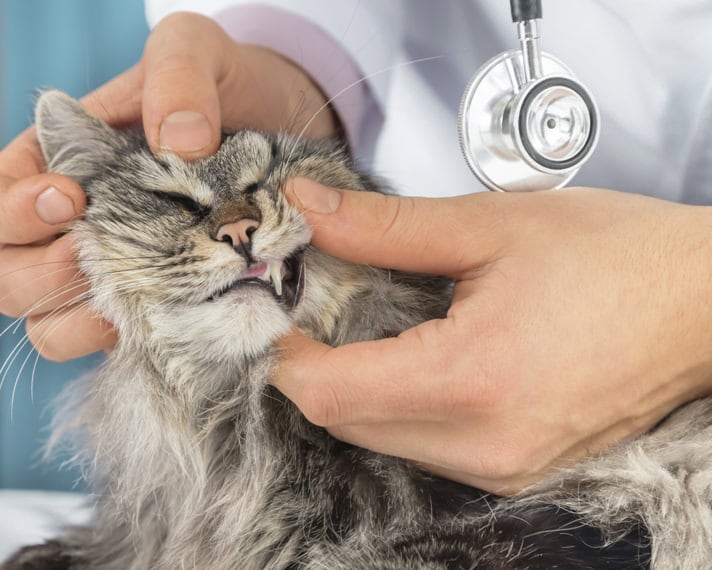As a cat parent, you’re undoubtedly familiar with that unmistakable guttural “glurk” or pre-puke “howl” that signals an impending vomiting episode. And while occasional senior cat vomiting that isn’t accompanied by other symptoms likely isn’t a cause for concern, frequent vomiting may indicate more than just an upset stomach or hairball. Your elderly kitty could be grappling with an underlying illness or disease such as inflammatory bowel disease (IBD) or diabetes.
To help you better understand this messy conundrum, we spoke with a vet expert about potential causes of senior cat vomiting, treatment options and prevention.
Click to jump to each section:
Is It Normal for an Old Cat to Throw Up?
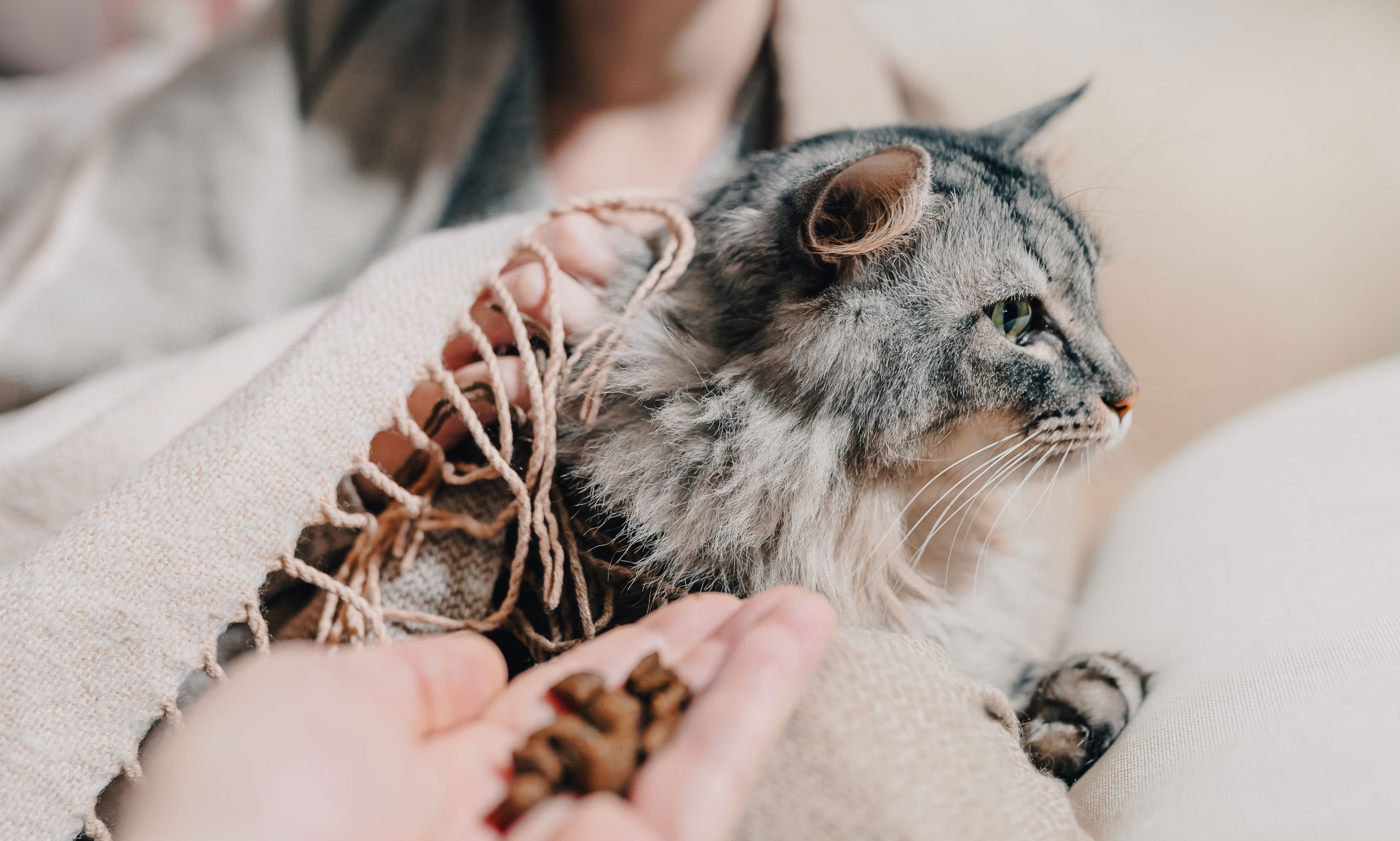
If your senior cat vomits sporadically, it’s likely due to a fleeting issue, like an upset tummy or a hairball. However, if a cat is frequently vomiting, especially if it happens more than once a week or multiple times a day, it could indicate an underlying disease process that warrants investigation, says Dr. Caren Carney, DVM, a veterinarian with Vets Off Leash.
In the case of senior cats, it’s especially crucial to closely monitor their health, as they’re more susceptible to age-related conditions that could present with vomiting.
Why Is My Cat Throwing Up?
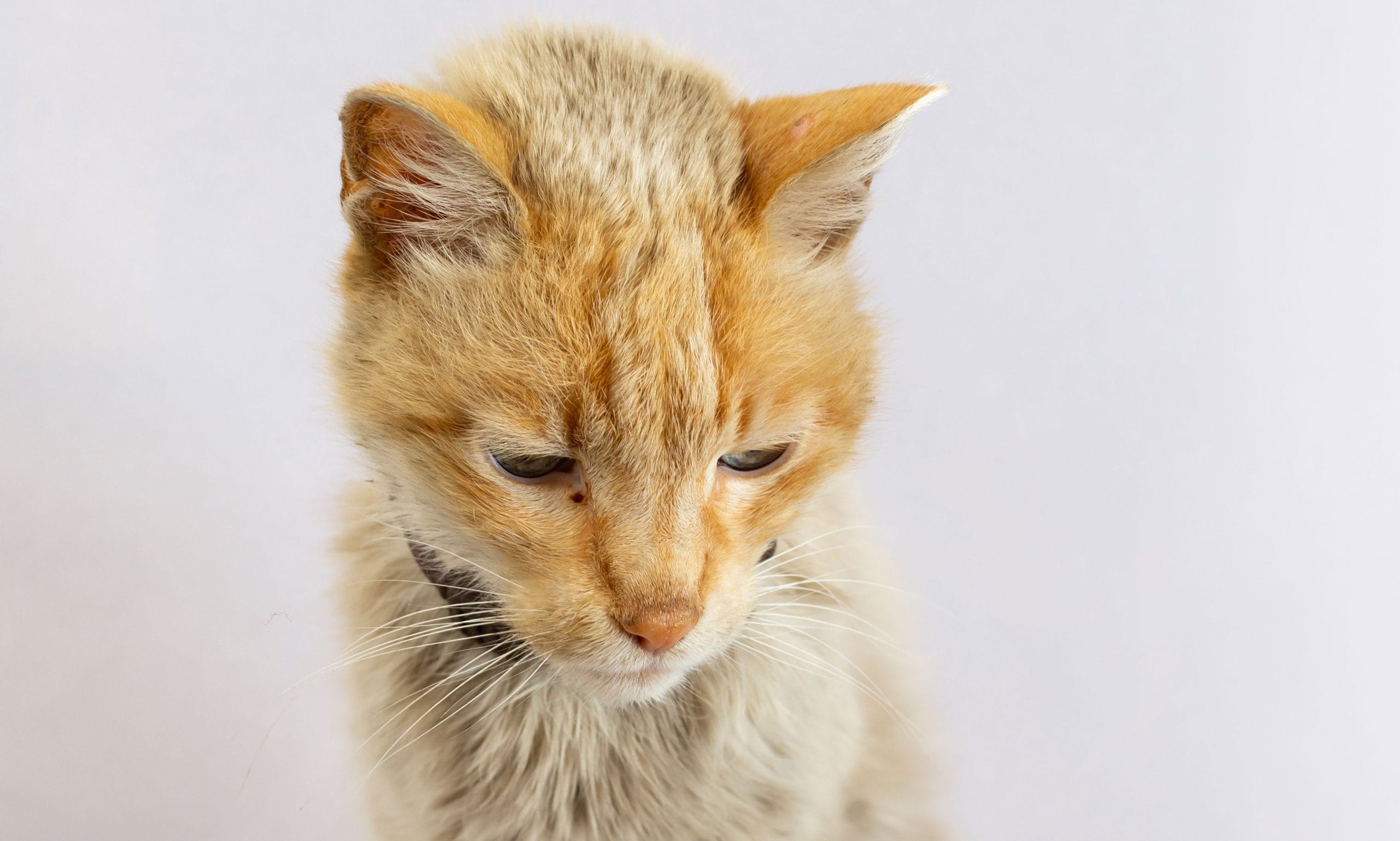
Most Common Causes of Vomiting in Old Cats
In senior cats (7-10 years old and up), the most common cause of persistent vomiting is chronic small intestinal disease. This disease has two primary causes:
- Inflammatory bowel disease (IBD): This chronic gastrointestinal condition occurs when the cat's intestinal lining becomes inflamed, disrupting the normal absorption of nutrients and digestion. IBD can lead to symptoms such as vomiting, diarrhea, weight loss and changes in appetite.
- Cancer, most often due to lymphoma: Lymphoma is cancer of the lymphatic system, which can impact various organs, including the gastrointestinal tract. When lymphoma affects the digestive system, it can cause symptoms such as vomiting, weight loss, diarrhea and changes in appetite.
Other conditions that are also quite common in senior cats and may induce vomiting include:
- Hyperthyroidism: A common endocrine disorder characterized by an overproduction of thyroid hormones due to an enlargement or tumor in the thyroid gland.
- Kidney disease. As cats age, their kidney function can gradually decline, leading to a reduced ability to filter waste products and maintain a proper balance of fluids and electrolytes in the body.
- Liver disease: Types of liver diseases in cats include hepatic lipidosis, lymphocytic cholangitis and more.
- Pancreatitis: Chronic or acute inflammation of the pancreas can disrupt the normal function of the organ, affecting both the digestive and endocrine systems.
- Diabetes: A metabolic disorder that occurs when a cat’s body cannot produce or effectively use insulin, a hormone that regulates blood sugar levels.
Less Common Causes of Vomiting in Old Cats
Although less probable, there are other possible causes of persistent vomiting in senior cats, including:
- Internal parasites, like tapeworms and roundworms
- Viral infections
- Consumption of a foreign object that causes a blockage or a toxic plant (this behavior is relatively rare in senior cats, as they’ve usually outgrown their curious phase)
When Should You Take Your Senior Cat to a Veterinarian?
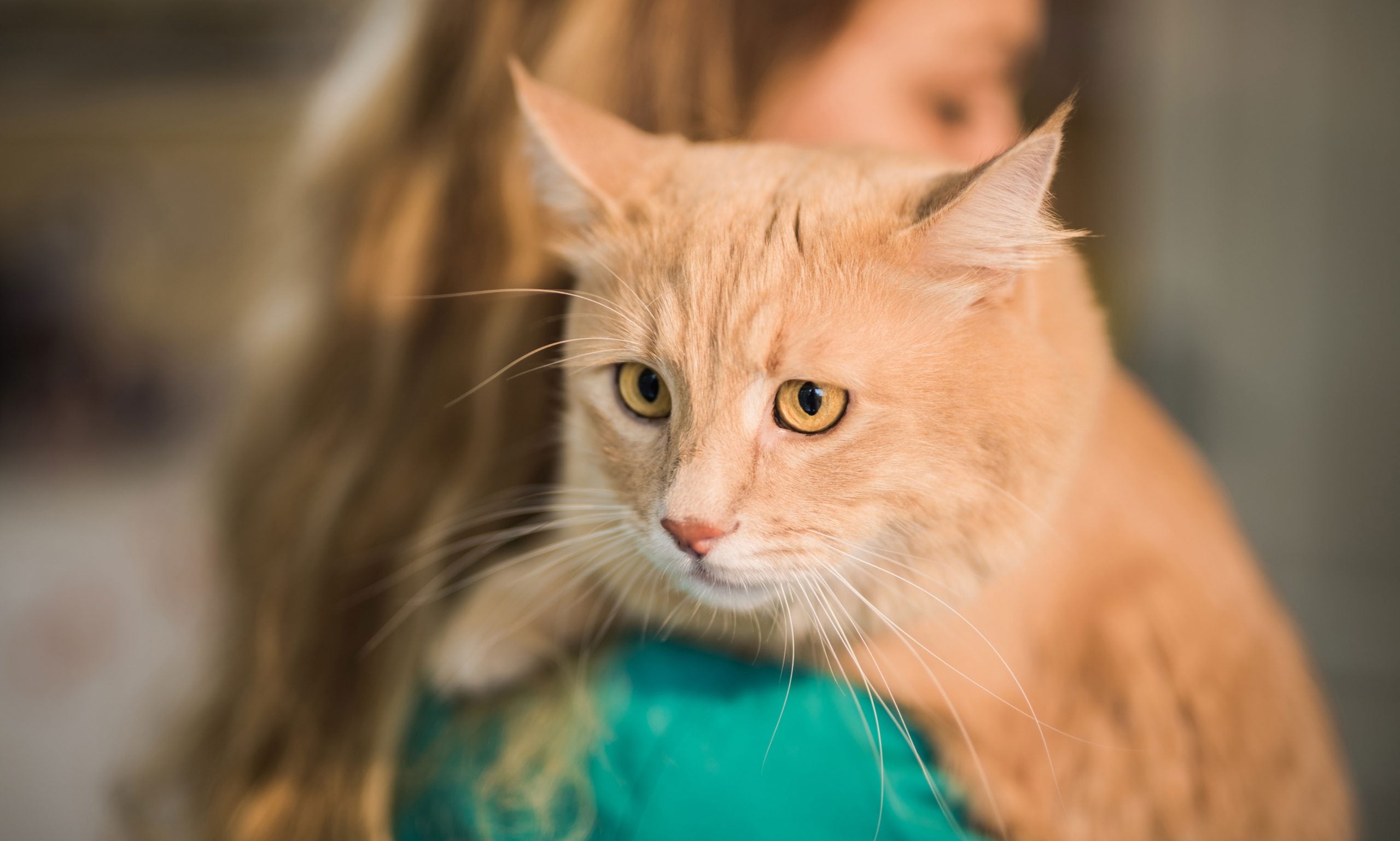
For instance, if your cat throws up around twice per month and you can see a hairball in the vomit, this is typically nothing to worry about.
On the flip side, there are several signs that would suggest a more serious problem that should be promptly evaluated by a veterinarian. These include:
- Frequent and/or persistent vomiting
- Vomit that appears bloody or contains worms
- Regurgitation of undigested food
- Vomiting accompanied by other symptoms such as lethargy, weakness, changes in appetite, weight loss, sneezing, increased or decreased urination, drinking excessive amounts of water, constipation, diarrhea or blood in the stool
Be mindful that cats are stoic creatures, and it can be difficult to tell by appearance if they are ill until it is severe. So, bring your cat in for a physical exam and diagnostic testing if you’re unsure.
“It’s better to have a small bill and reassurance than to miss the first signs of a bigger problem,” Dr. Carney says.
When Is It an Emergency?
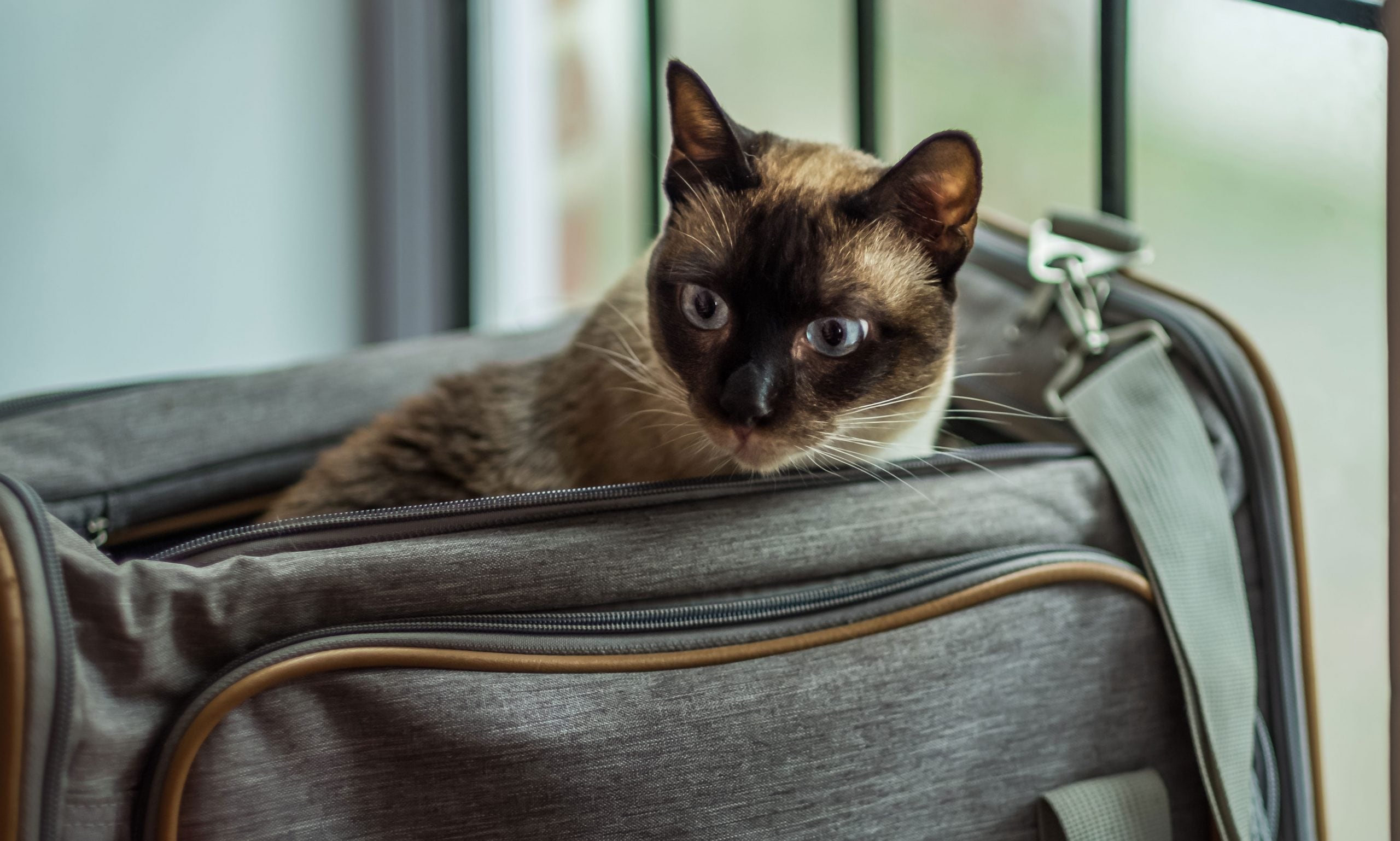
Signs and symptoms that signal an emergency include:
- Vomiting multiple times in a row or multiple times in a day
- Not eating/drinking or being unable to keep food and water down
- Signs of dehydration, including sunken eyes, reduced skin elasticity and dry mucous membranes
- Signs of pain, such as vocalizing or hunching over
Once again, if you’re unsure whether your senior cat’s condition is an emergency, the safest option is to call your veterinarian and ask their opinion or take them to a pet emergency clinic.
Diagnosis and Treatment of Vomiting in Senior Cats
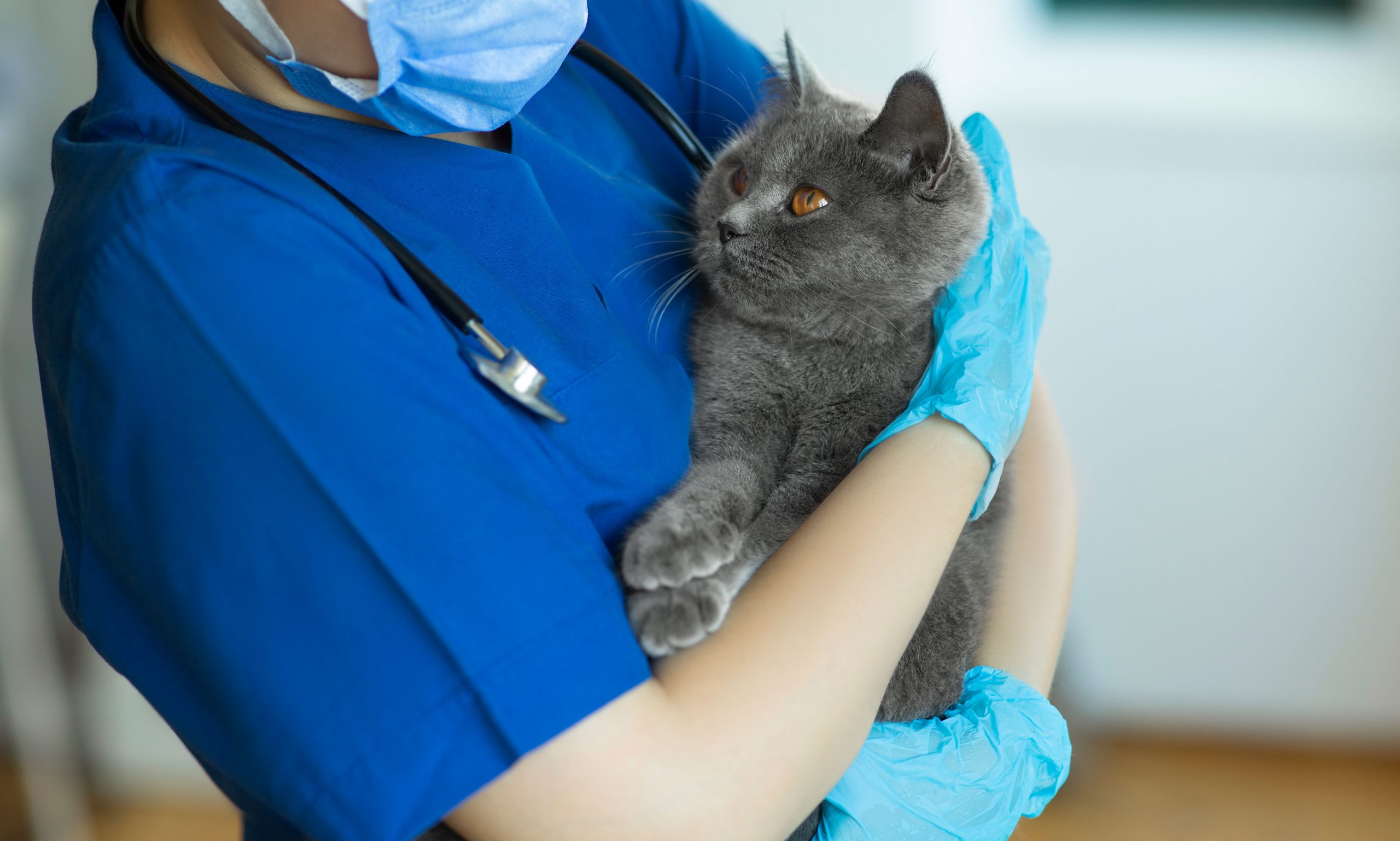
The doctor will then perform a comprehensive physical exam. Blood work and typically a fecal analysis will be conducted to eliminate the possibility of toxicities, parasites and metabolic disorders.
If no abnormalities are detected, your veterinarian may recommend X-rays or ultrasound imaging to identify potential masses, foreign objects or other gastrointestinal issues. Should these diagnostic tools prove inconclusive, a biopsy of the intestinal tract may be performed to rule out cancer or inflammatory bowel disease.
If your cat is dehydrated due to repeated vomiting, they may receive intravenous or subcutaneous fluid therapy.
Depending on the diagnosis, treatment options may include:
- Corticosteroids to address intestinal inflammation
- Medication to control hyperthyroidism
- Antibiotics to combat infections
- Dietary adjustments to address allergies
- Surgical intervention to remove tumors or foreign objects
- Chemotherapy or immunotherapy to fight cancer
- Other targeted therapies that address the underlying causes and symptoms
What About At-Home Treatment?
It’s generally not recommended to treat your senior cat for vomiting at home without first visiting a veterinarian, as vomiting could be a sign of a serious illness or life-threatening illness, says Dr. Carney.
That being said, if your veterinarian thinks the issue is minor and doesn’t require medical intervention, they may suggest at-home treatment, such as adjusting your cat’s food or using a hairball control supplement, like Tomlyn Hairball Remedy Gel.
Preventing Vomiting in Senior Cats
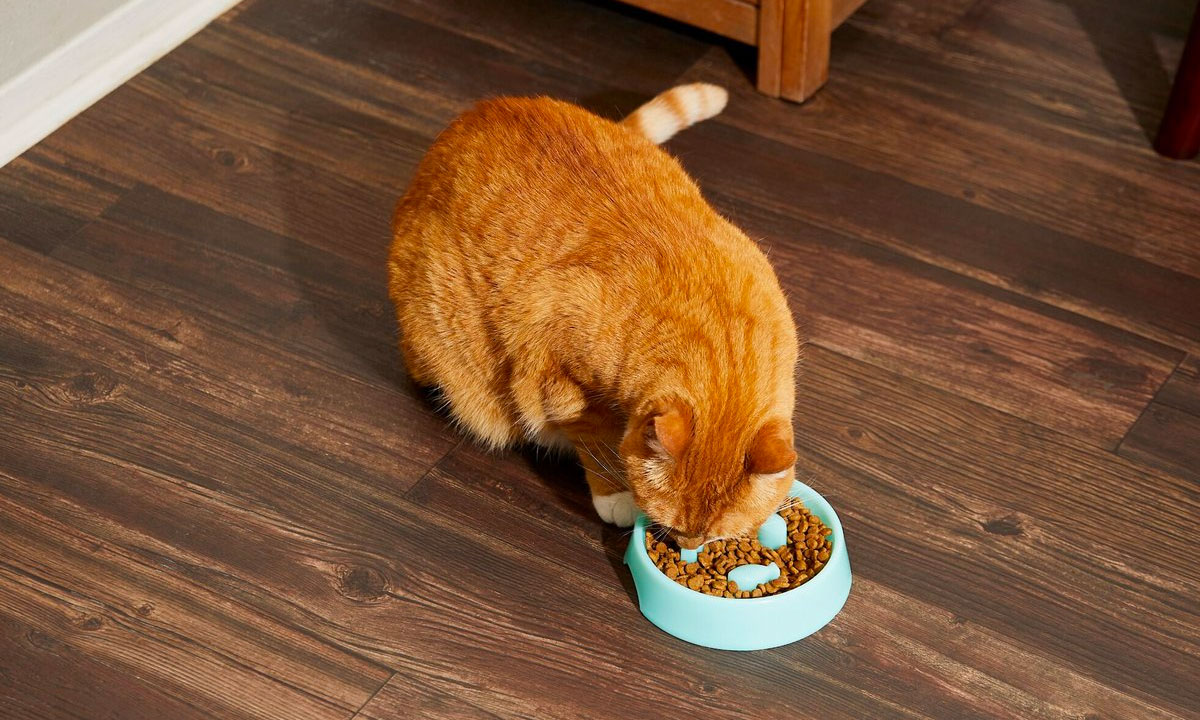
- Feed a healthy diet: Choose high-quality, easily digestible cat food that’s specifically formulated for senior cats. This can help support their aging digestive system and reduce the likelihood of vomiting. If your cat has food allergies or sensitivities, consider a limited-ingredient cat food, like Natural Balance Limited Ingredient Chicken & Green Pea Recipe.
- Gradually make food transitions: When changing your cat’s diet, introduce the new food slowly by mixing it with the old one over a period of seven to 10 days. This gradual transition can help prevent digestive upset and vomiting. Learn more about gradually transitioning your cat’s diet.
- Use a slow feeder bowl: If your cat is a fast eater, consider using a slow feeder bowl, like this Frisco Fish-Shaped Slow Feeder Bowl, to reduce your cat’s eating speed. This can help improve digestion and prevent vomiting caused by rapid food consumption.
- Provide smaller, more frequent meals: Instead of offering large meals, provide your senior cat with smaller, more frequent portions throughout the day. This can help reduce the strain on their digestive system and decrease the risk of vomiting.
- Avoid cow’s milk: Although cats may find dairy products appealing, most adult cats are lactose intolerant and unable to properly digest cow’s milk. As a result, consuming dairy can lead to digestive issues and symptoms like diarrhea or vomiting.
- Encourage hydration: Ensure your cat has access to fresh water at all times. Consider using a water fountain to encourage your cat to drink more.
- Control hairball formation: Regularly brushing your cat can help reduce the amount of hair your cat swallows, thus reducing hairball formation and associated vomiting. Additionally, you can consider adding a hairball control supplement, like PetHonesty Dual Texture Hairball Support Chews Supplement that helps support hairball removal or Tomlyn Laxatone Gel Hairball Control Supplement, a gentle and effective lubricant that helps eliminate and prevent hairballs. Or, try a specialized hairball control food, like Iams ProActive Health Indoor Weight & Hairball Care Dry Cat Food, to their diet.
- Schedule routine visits with your veterinarian: Regular check-ups are essential for monitoring your senior cat’s health and addressing potential issues that could lead to vomiting.
While vomiting in senior cats can be concerning, understanding the potential causes and taking proactive steps to treat and prevent it can make a world of difference in your feline friend’s health.
For additional guidance on enhancing your senior cat’s well-being, don’t miss our article on tips for keeping your senior kitty healthy.
Expert input provided by Dr. Caren Carney, DVM, a veterinarian with Vets Off Leash.
This content was medically reviewed by a veterinarian.
More about vomiting in cats:
Share:
